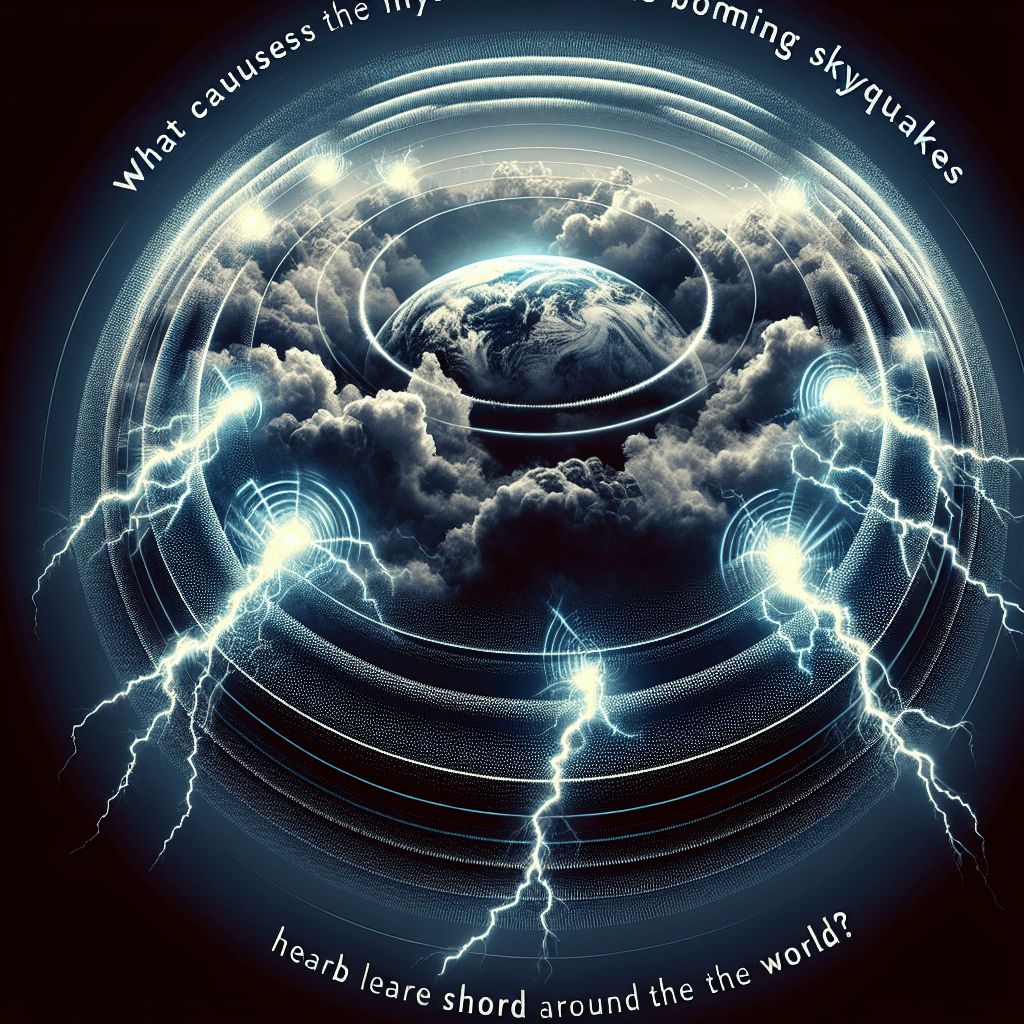What causes the mysterious booming skyquakes heard around the world
A phantom boom rattles windows from coast to coast, a thunderclap from a clear blue sky that has no official explanation. We dive into the bizarre science and chilling theories behind the world's most baffling auditory mystery.


Too Long; Didn't Read
TLDR: Mysterious booming sounds from the sky, known as skyquakes, are reported globally. Potential causes range from military sonic booms and meteors to atmospheric pressure changes and gas escaping from the Earth, but no single theory explains every event.
Rumbles from Above: What Causes the Mysterious Booming Skyquakes Heard Around the World?
Have you ever heard a deep, booming sound that seems to shake the sky itself, only to find clear, empty skies? You’re not alone. For centuries, people across the globe have reported these perplexing "skyquakes." Known by many local names—from the "Seneca Guns" along Lake Seneca in New York to the "Barisal Guns" in Bangladesh—these mysterious acoustic events sound like distant cannon fire or a thunderous explosion without a storm. They are a genuine phenomenon, leaving witnesses baffled and scientists intrigued. This post will delve into the leading scientific theories that attempt to explain what causes these mysterious booming skyquakes heard around the world.
The Leading Scientific Explanations
While no single cause has been confirmed to explain every skyquake, scientists have proposed several plausible natural and human-made origins. The true cause likely varies by location and circumstance, meaning "skyquake" is probably an umbrella term for several distinct phenomena.
Sonic Booms from Aircraft
One of the most common and verifiable explanations is a sonic boom created by an aircraft breaking the sound barrier. Military jets on training exercises often fly at supersonic speeds, generating a massive shockwave that travels to the ground as a loud boom. Atmospheric conditions, such as temperature inversions, can cause this sound to travel for hundreds of miles. This explains why you might hear the boom without ever seeing the aircraft responsible.
Meteors Exploding in the Atmosphere
When a large meteor, known as a bolide, enters Earth's atmosphere at high speed, it can break apart and explode. This upper-atmosphere explosion generates a powerful sonic boom that can reach the ground as a deep, rumbling sound. According to NASA, dozens of these small asteroid-sized objects enter our atmosphere each year. If the event occurs during the day or under heavy cloud cover, the associated bright flash of light might not be visible, leaving only the unexplained sound.
Natural Phenomena from Earth Itself
Not all skyquakes may originate from the sky. Several geological and atmospheric processes are considered strong candidates:
- Shallow Earthquakes: Small, shallow earthquakes can produce booming sounds. When seismic energy from a minor tremor travels to the surface, it can transfer to the air and create audible, low-frequency sounds that are often mistaken for thunder.
- Gas Vents: Another theory suggests that skyquakes could be caused by the explosive release of gas from the Earth. This could be methane venting from decaying organic matter at the bottom of a lake or gas escaping from vents on the seafloor. The abrupt release of this trapped gas could create a loud, booming noise.
- Distant Storms and Waves: Sound can travel in strange ways through the atmosphere. A phenomenon known as "atmospheric ducting" can trap sound waves and carry them over vast distances with little loss of energy. This means the thunder from a powerful storm hundreds of miles away could be heard as an isolated boom. Similarly, some researchers propose that large ocean waves crashing into each other or against cliffs can generate low-frequency sounds that travel far inland.
Conclusion
The mystery of skyquakes lies not in a single, elusive cause, but in a variety of powerful forces. From military jets pushing the limits of speed to meteors meeting a fiery end in our atmosphere, the explanations are often grounded in science. Geological rumbles, distant thunder carried on atmospheric currents, and even large waves all contribute to this global acoustic puzzle. While a definitive explanation for every boom may remain out of reach, each report provides a clue. These rumbles from above are a potent reminder of the dynamic and sometimes startlingly loud planet we inhabit, where the sky and the Earth are constantly interacting in ways we are still working to understand.


